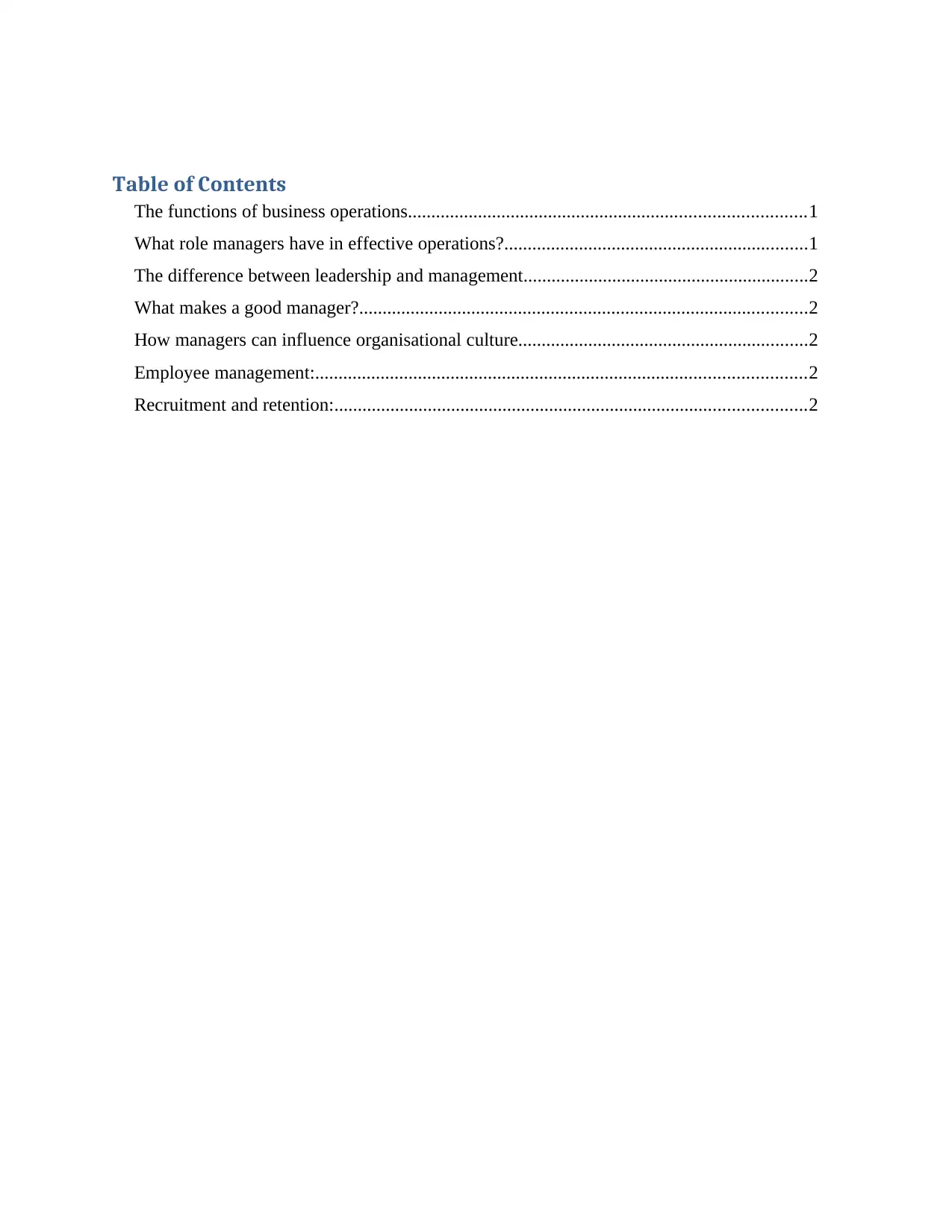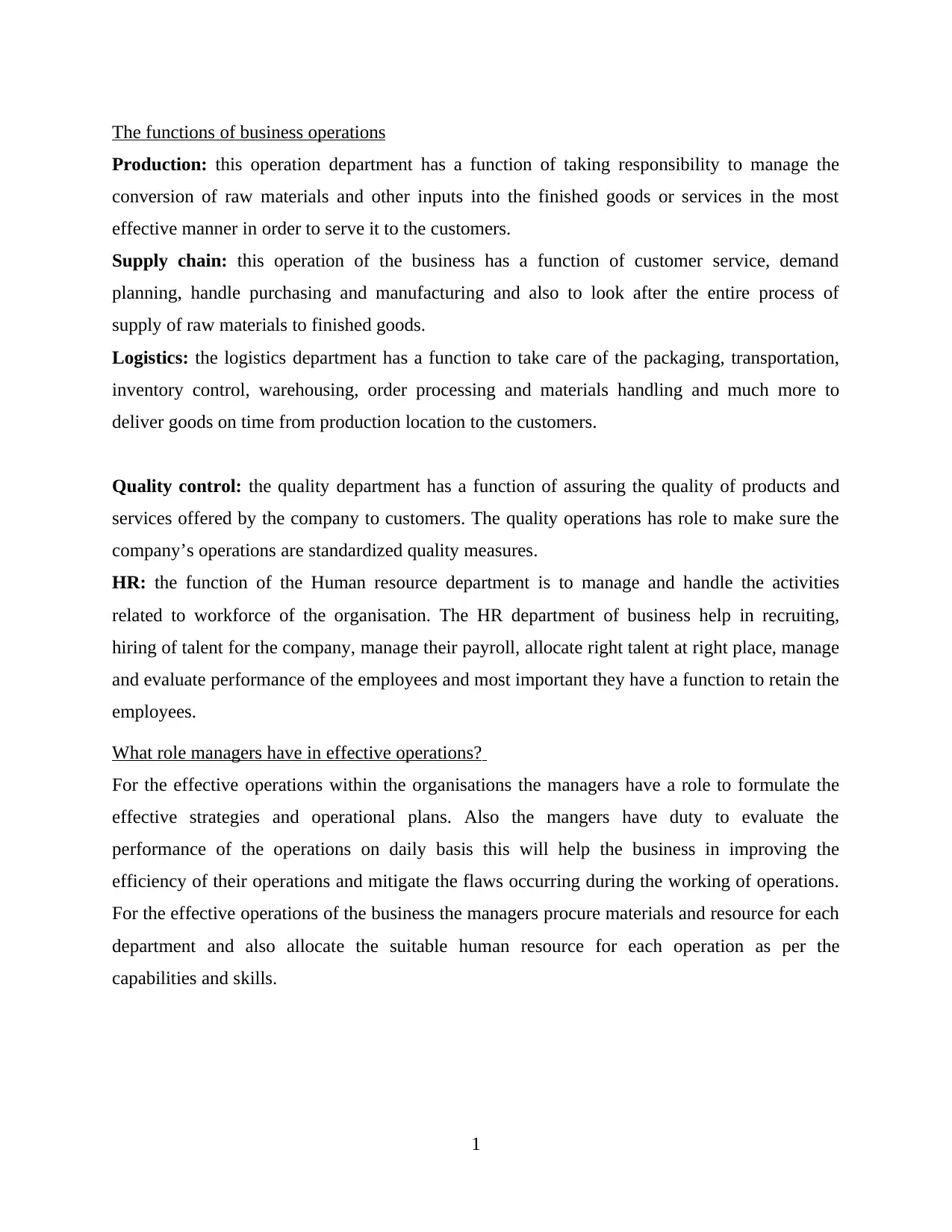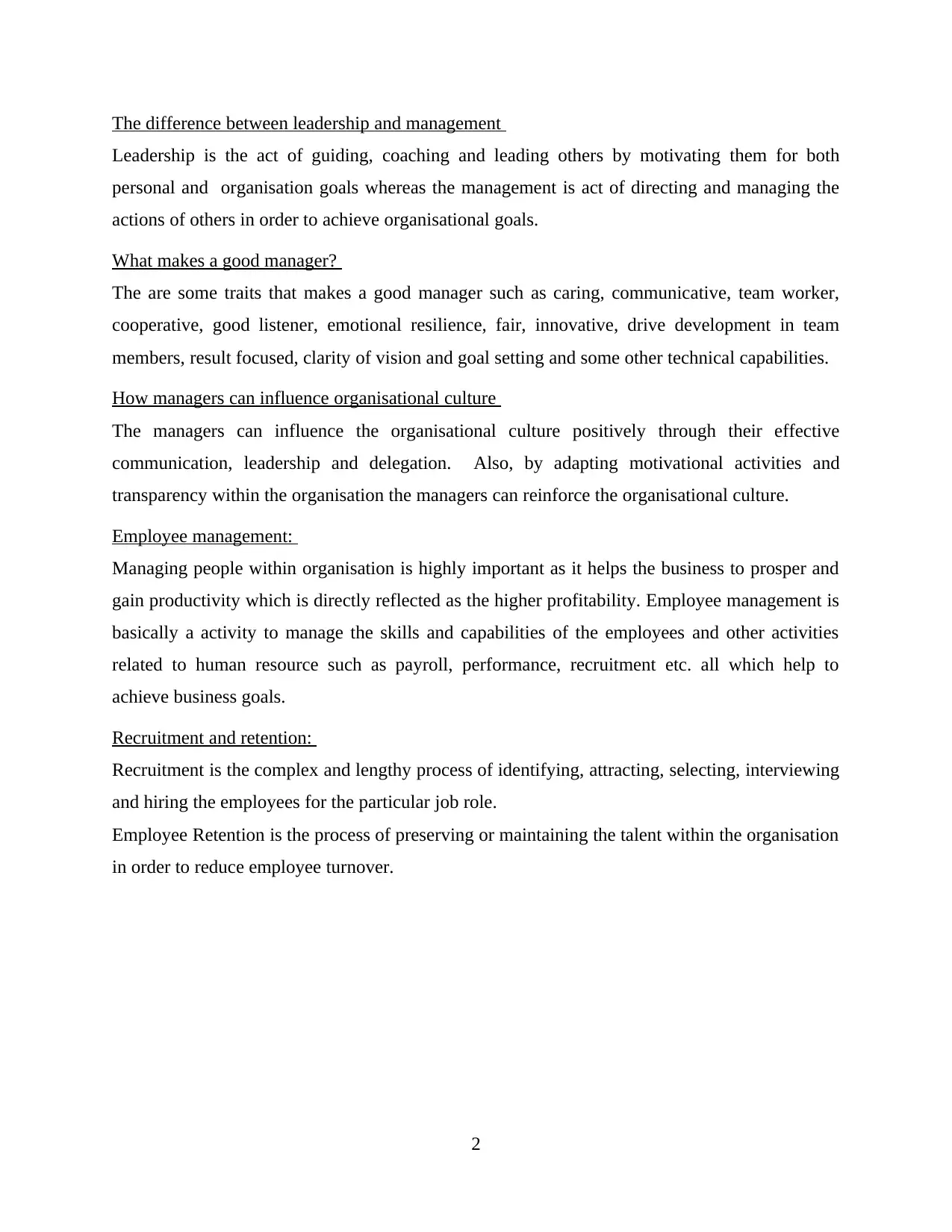Comprehensive Viva Voice on Leadership, Management, and Operations
VerifiedAdded on 2023/06/12
|5
|661
|105
Report
AI Summary
This document presents a Viva Voice examining various facets of business operations, including the functions of different departments like production, supply chain, logistics, quality control, and HR. It elucidates the critical roles managers play in ensuring effective operations through strategic planning, performance evaluation, and resource allocation. The discussion differentiates between leadership and management, highlighting the traits of a good manager and how managers can positively influence organizational culture. Furthermore, the Viva Voice touches on employee management, emphasizing its importance in boosting productivity and profitability, and delves into the processes of recruitment and retention for maintaining talent within the organization. Desklib provides this document as part of its collection of solved assignments and past papers.
1 out of 5












![[object Object]](/_next/static/media/star-bottom.7253800d.svg)